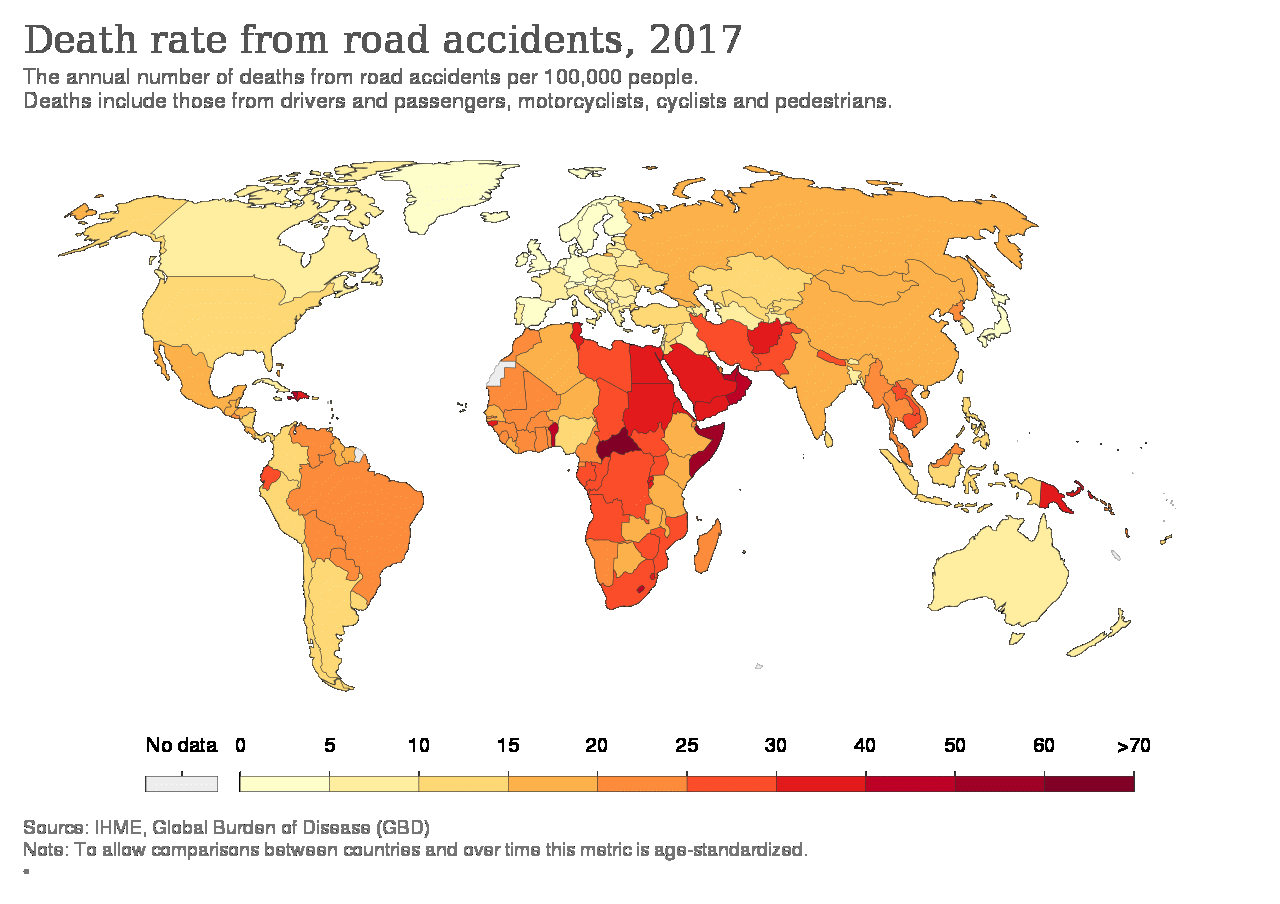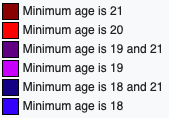Numerous countries have become extremely dependent on cars, as most of the infrastructure and the way of life itself imply that people are expected to drive to work, shopping malls, universities, hospitals, and other institutions. Traffic collisions happen too often on the roads to undermine the importance of infant safety seats and the rules of using them. A motor vehicle collision occurs when an automobile collides with another car, pedestrian, animal, tree, or a building of any kind. This often leads to multiple injuries, which may result in disability or death. Driving a car is the most dangerous routine daily activity, which generally leads to its perception as common and safe. The number of car accidents that happen on the roads is enormous, and this is the reason for little media coverage compared to other accidents with multiple casualties. The generally relaxed public attitude to the issue should be changed.

Drunk drivers were at some point recognized as a serious threat, and increased attention and awareness helped to mitigate the crisis with the help of multiple means. The American authorities, for instance, raised the drinking age to 21 years, although numerous sates did not like the idea at first and had a much lower legal drinking age. However, this drastic measure has prevented numerous deaths since then. Nowadays, America remains the only Western state to have such a high legal drinking age It must be understood that a nation that depends on vehicles greatly, should do everything to promote safety on the roads. There is a large number of other issues concerning public roads safety that have to be mitigated in the same confident way.


Therefore, the time has come to enhance public awareness concerning infant safety seats. It is especially important for people without sophisticated professional training who have to take care of infants.
There can be proposed a health and safety promotion plan that includes practical recommendations for caregivers.
- Provide caregivers with general information on road safety regulations
- Describe in detail the most dangerous situations on the road
- Teach caregivers how to act in case of a car accident and how to provide first medical help for infants
- Provide information on the specifically vulnerable parts of infants’ bodies
- Distribute illustrated guidelines concerning the use of infant safety seats
- Hand out detailed check-lists concerning infant safety rules while in the car
It is important to promote the guidelines concerning safety on the road. Infant safety seats should be emphasized as the most sustainable option for reducing the risks that infants are exposed to while being driven. Caregivers should be advised on how to take care of infants in a vehicle, place the infant’s safety seat properly, and use the seatbelt. They should also be given a checklist which includes some extra reminders of some basic safety rules that are, nevertheless, often neglected, such as never leaving infants in cars alone and some other.
Adults should be especially careful when an infant is in a car. It is important to remember that children are far more vulnerable to all external factors than adults are. It is essential to place the infant seat belt properly and fasten it in a way that will not harm the infant. Moreover, adults should carefully check the way the seatbelt fastens the infant safety seat. Group 0+ car seats are increasingly popular among car owners. It is important to remember that they are designed for children younger than 15 months, that the position in the seat is rear-facing, and that the airbag (if it is not a curtain airbag) should not be used. People should be reminded that an infant’s life is the main priority. Rear-facing infant safety seats should not be placed in front, as the airbag activation is extremely dangerous under such circumstances. It is also important to stay focused on the road and not react to any minor changes in an infant’s behavior, as the lack of attention to the situation on the road can lead to a car accident.
Several hundreds of infants die in various types of sitting devices annually. There are numerous reasons for the horrifying data, as health organizations, in general, discourage regular sleeping in sitting devices. Using a specific device not for the purpose intended is one of such reasons (Liaw et al., 2019). Moreover, infant safety seats are often installed in the wrong way, and this often leads to multiple injuries and deaths. Studies show that the phone and interactive app were more effective means to facilitate accurate car seat installation compared to the user manual (Schwebel et al., 2016). Some studies also claim that prolonged periods in a car seat are dangerous for infants, although car seats are an important legal requirement (Plumptre et al., 2018).

Official US safety data shows that the number of vehicle-miles people travel is constantly growing. Moreover, the number of crashes increases very years as well. However, the number of fatalities tends to decline due to numerous safety regulations and improvements in infrastructure. Car manufacturers are also continually working on improving the safety of vehicles. Nevertheless, it is important to keep in mind that infants are exposed to a much greater risk in case of a car collision. Therefore, it should definitely be studied by every person who possesses a car and plans to look after an infant.
References
Bureau of Transportation Statistics. (2019). Motor Vehicle Safety Data.
Institute for Health Metrics and Evaluation. (2020). Probability of Dying from Road Injury Has Dropped Worldwide in All but 5 Nations. Web.
Liaw, P., Moon, R. Y., Han, A., & Colvin, J. D. (2019). Infant deaths in sitting devices. Pediatrics, 144(1), e20182576.
Plumptre, I., Phillips, C., Williams, S., & Plumptre, C. (2018). G95 (P) Sudden infant death syndrome and car seats: a systematic literature review. Archives of Disease in Childhood, 103(1), A39.
Schwebel, D. C., Johnston, A., & Rouse, J. (2017). Teaching infant car seat installation via interactive visual presence: An experimental trial. Traffic Injury Prevention, 18(2), 188-192.
Contact information
The Bureau of Transportation Statistics, part of the Department of Transportation is the preeminent source of statistics on transportation in the US. www.bts.gov
The Institute for Health Metrics and Evaluation is an independent global health research center at the University of Washington. www.healthdata.org
Pediatrics is the official journal of the American Academy of Pediatrics. www.pediatrics.aappublications.org
Archives of Disease in Childhood is an international journal specialising in child health. www.adc.bmj.com
Traffic Injury Prevention is an academic journal covering the prevention of injuries resulting from traffic accidents. www.tandfonline.com
Blausen Medical Communications, Inc. is the creator and owner of medical and scientific images. www.blausen.com